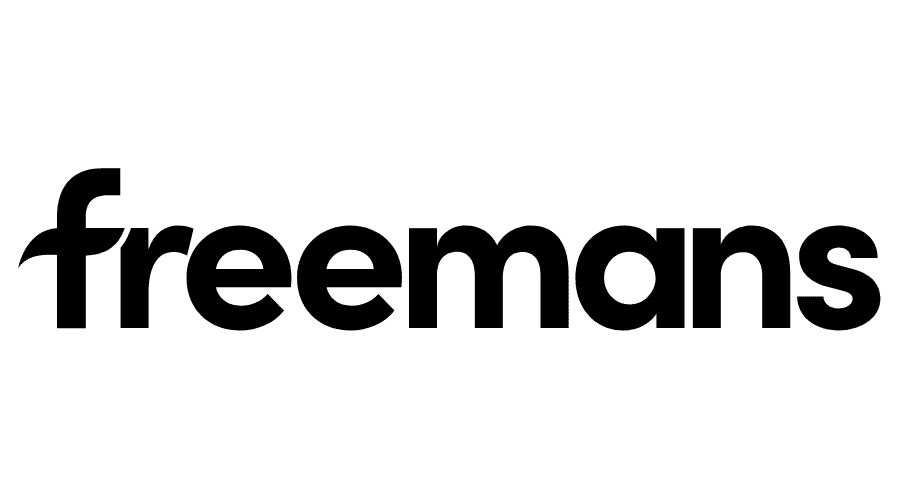Freemans is a British online and catalogue clothing retailer headquartered in Bradford, England. Freemans offers a range of products, predominantly clothing, footwear and homewares.
The company was founded as Freemans & Co in 1905 by four partners, A.C. Rampton, W.E. Jones, S.C. Rampton and H.A. Freeman and began life with only twelve staff out of a terraced house based in Clapham, south London. Each member put up £100 as capital to get the business going, equivalent to £10,978 in 2020.
Freemans specialised in selling clothing items and distributed its catalogue each month throughout the United Kingdom. The initial catalogues were made up of black and white illustrations that reflected the available products. Of the product range, the “made to measure” suits were a success, offering a cheap tailored opportunity for customers at the time, costing only 30 shillings, equivalent to £165 in 2020. The company used agency representatives in local areas as a form of credit control and to manage sales, with most goods being sold on credit. Women, however, were restricted by law as they could not negotiate credit arrangements and required a husband’s signature to purchase goods. Therefore, the majority of agents were men.
A year after it was founded, the newly named Freemans of London moved to larger premises at 215 Lavender Hill, Wandsworth. Company staff are affectionately nicknamed “The Lavender Hill Mob”, some 45 years prior to the famous British film of the same name being made.
In 1914 the company was forced to direct its efforts towards the war effort and, ceasing expansion plans, focus on buying blankets and selling them to the Government and the armed forces.
The 1920s saw the introduction of colour photographs in the Freemans catalogues and the company continued to expand, with 200 people being employed by 1922. This led to another move, into a converted cinema that was formerly known as “the Gem”, but saw the company remain in the Lavender Hill area of London.
Freemans grew to dominate the mail order landscape in the 1930s, being the largest mail-order company in the UK, with over 30,000 agents. The expansion also meant that the company needed to find larger premises; it moved to 139 Clapham Road, London, in 1937.
By 1937 Freemans had expanded its product line to include important labour-saving household service items such as vacuum cleaners and washing machines. Now in new offices, it also became a privately held company.
Being situated so close to London had unfortunate consequences during the Second World War as the Clapham offices were bombed, killing 23 members of staff and destroying all company records. However, the company continued to trade, now limited to a much smaller range of products due to the scarcity of suppliers and more essential use of raw materials. In fact, the catalogue featured only clothing items, but these could now be purchased using the newly introduced coupon rate system. By the end of the war, as rationing had taken full effect, clothing coupons were the only way to pay for clothes.
Despite the staff count reducing to less than 300 by 1945, the 1950s was a period of boom for the mail-order industry. New levels of disposable income as part of a “post-war” boom led to increased levels of consumerism and Freemans capitalised on this by producing a fully colourised 1000-page catalogue that was distributed by mail and featured a much wider range of products. The credit proposition was also giving Freemans a USP that wasn’t available on the high street and was also perhaps the primary reason catalogue shops such as Grattan, Littlewoods and Empire Stores did so well during this period.
In 1963 Freemans PLC was floated on the stock market as it became a public limited company, and it installed its very first computer, being the first mail-order company to do so. This was just one example of how Freemans built a name as the most pioneering mail-order company in the UK, followed by the introduction of telephone ordering and digital catalogues.
Looking further afield, Freemans opened a new international division, with the aim to break into the worldwide marketplace. The venture eventually made Freemans one of the 140 recipients of the Queens Award for Export Achievement in 1995.
In 1969 the company required more warehouse space and opened an automated distribution centre in Peterborough, England. It became the first company to post goods in plastic packaging and was also the first UK company to generate heat from waste packaging.
Once again Freemans looked at an innovative way to progress its business as it introduced a telephone ordering service for its agents. This was further developed five years later as a telephone system was introduced to deal with both customer and agent queries.
Tony Rampton, a grandson of one of the founders, served Freemans as Managing Director (1964–1965), Chairman (1965–1984) and President (1984–1988)


